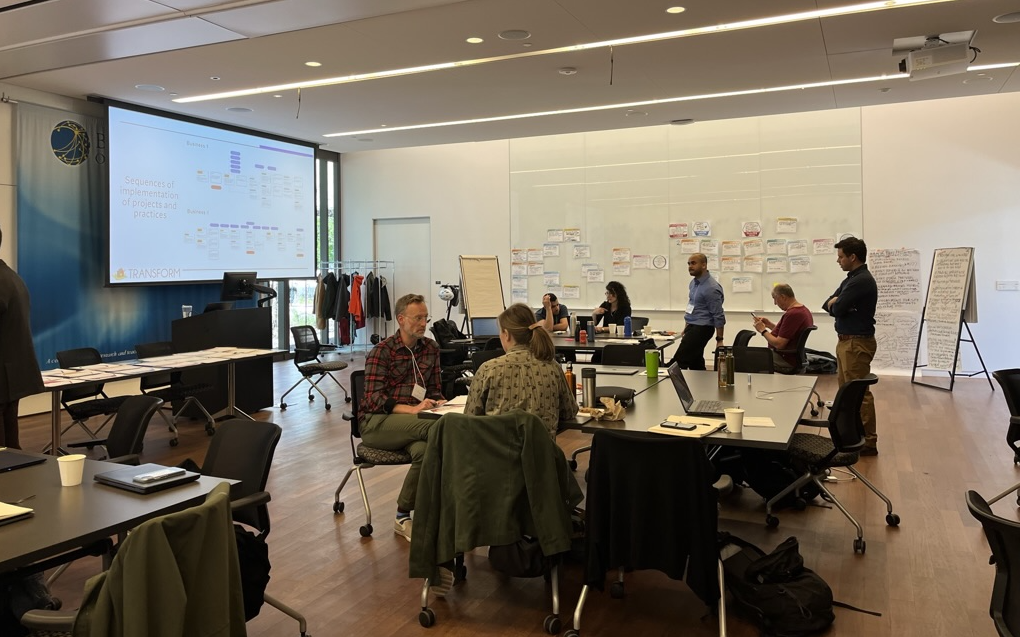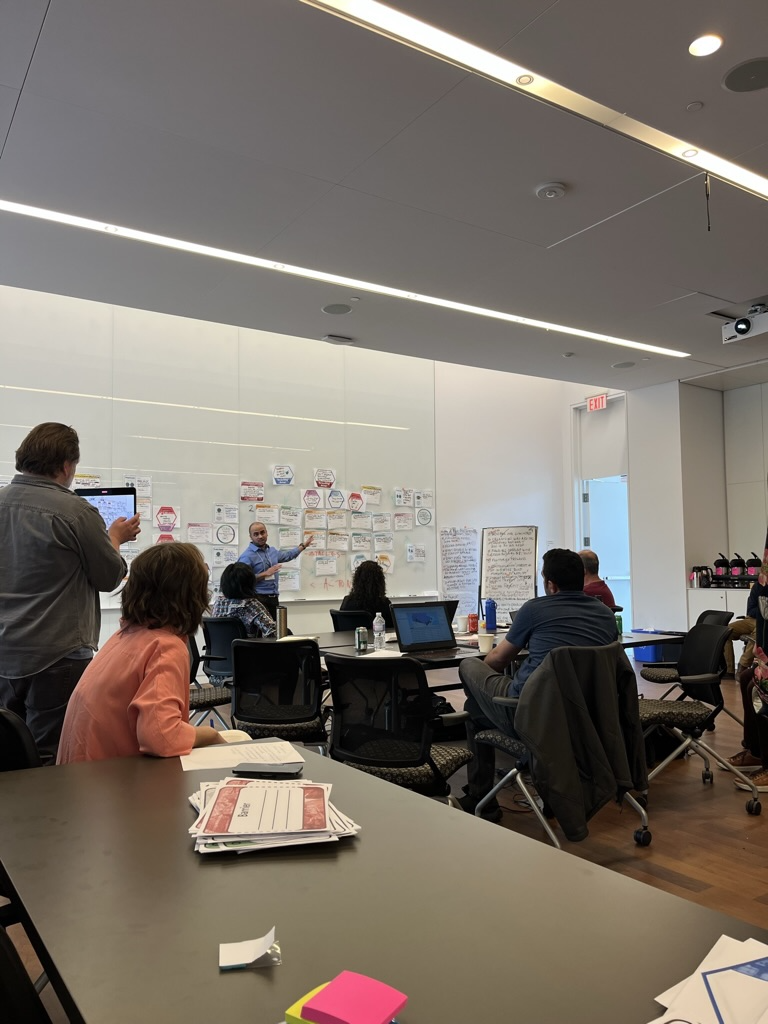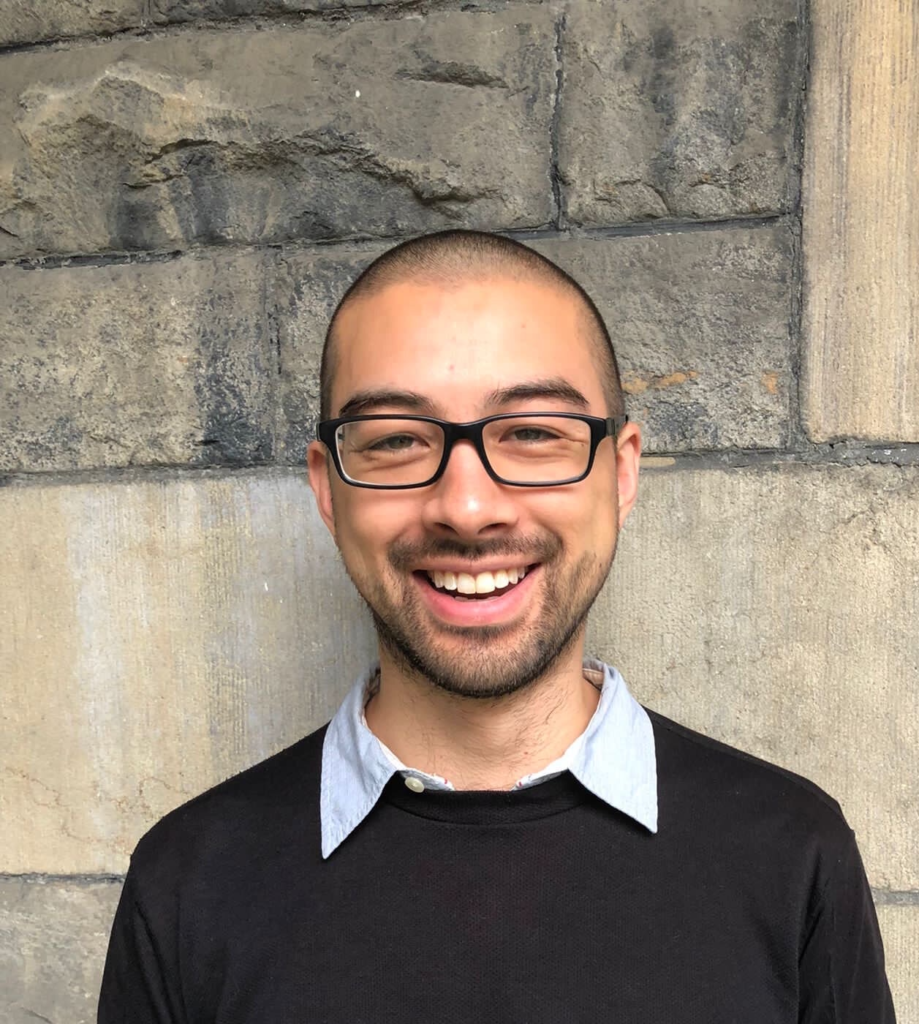
TRANSFORM’s Waterloo Hub has an exciting summer of sustainability experiments and projects planned. On Tuesday, May 16 and Wednesday, May 17, the TRANSFORM team gathered an exciting group of small and medium enterprises, non-profits, and public sector partners at the Centre for International Governance Innovation in Waterloo, Ontario, for a two-day workshop. The workshop was facilitated by Post-Doctoral Research Fellows Drs Christopher Orr and Jose DiBella, as well as TRANSFORM Director Professor Sarah Burch.
The TRANSFORM Workshop on Sustainability Experiments for Business Ecosystem Transformations in Waterloo combined capacity building and experiment co-creation activities to help participants design experiments that advance the sustainable transition. Participants worked in five teams to develop sustainability initiatives and plans to implement them. Their sustainability experiments ranged from municipal programming to encourage deep energy retrofits to inter-restaurant cooperation to encourage sustainable kitchen design.

The workshop began with Jose DiBella introducing TRANSFORM Case Studies and Pathways (https://transformcities.ca/case_study/). Sarah Burch and Jose DiBella then shared the concept of “business models for the Anthropocene” with the attendees so that they could better understand how the private sector can play a role in accelerating the sustainability transition (https://link.springer.com/article/10.1007/s11625-021-01037-3). Christopher Orr and Jose DiBella described what the sustainability experiments might look like and provided examples for the Latin American experiments conducted in winter 2023. The start of day one was filled with much information for the participants to consider and engage with. Following this knowledge sharing, it was time for the participants to breakout into their groups and begin thinking about their experiments. To finish the day, the TRANSFORM team and participants went for a group dinner at the Bauer Kitchen to continue building connections outside the workshop.
Day two of the workshop was filled with excited energy and significant brainstorming and planning from the participants. The morning’s first task was to finalize the design of the experiment. Once this was completed, the teams worked through the ‘building the pathway activity’ led by Jose DiBella. Examples of pathway maps can be found on the TRANSFORM website and are contained within listed Case Studies (https://transformcities.ca/practice/wooden-boat-food-co-source-local-and-sustainable-food/).
The Pathway exercise encouraged teams to think about numerous factors of their experiments, from planning and research to implementation and networking. Barriers to experiment success were also considered, as well as enabling and arresting actors. This process took several hours, and all the groups addressed this process with a different style. Before ending the two-day event, all the teams presented back to the whole group. By the end of day two, all the workshop groups had a final experiment design and a pathway map of how they would achieve their goals.
Experiment teams will be implementing their ideas throughout the summer. Check back for more updates about the summer experiments from the Waterloo hub!

